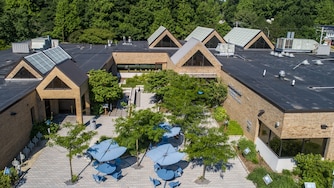A proposal from Baltimore Councilwoman Odette Ramos would tax vacant lots at four times the current rate, in turn making it easier for the city to acquire those parcels for future redevelopment.
Vacant lots are taxed the same as those with structures, at a rate of $2.248 per $100 of assessed value. Last year, the council unanimously approved a plan to tax vacant buildings at three times the current property tax rate, beginning in the summer of 2026. The rate quadruples for those structures in the following year if they remain abandoned.
The council decided not to include vacant lots in that tax hike out of concern it could affect homeowners with adjoining partial lots or community gardens, for example. But Ramos said Monday night during a City Council meeting that the city’s Department of Housing and Community Development is working to survey all the vacant lots to determine which ones have a function and which are just open land.
“We’re not using this as a revenue generator,” Ramos said. “Ultimately, the reason for a vacant property tax is to incentivize the owner to do something with the lot.”
Under Ramos’ proposal, vacant structures would also automatically be taxed at four times the current rate, at $8.992 per $100 of assessed value.
A recent report found Maryland has chronically undervalued Baltimore’s vacant land, possibly to the tune of $484 million.
If the taxes on a property aren’t paid, the city can place a lien on them. Through a court process known as “in rem,” the city can then foreclose on the properties.
The 2024 bill had a sunset provision on the vacant property tax, which would have ended the special rates after 2029. If Ramos’ bill passes, the sunset provision would be stripped and the higher rates would remain in perpetuity.
Mayor Brandon Scott was highly supportive of the tax on vacant structures, saying last year that the tax would be a helpful tool toward achieving the city’s “overall vision to end vacants in Baltimore.”
The Maryland General Assembly gave the city the ability to impose special taxes on vacant lots and structures in the 2024 legislative session.




Comments
Welcome to The Banner's subscriber-only commenting community. Please review our community guidelines.